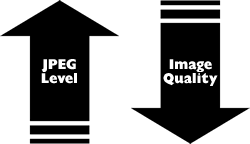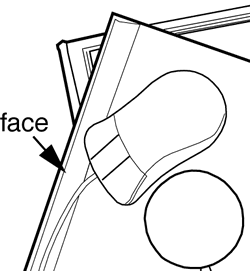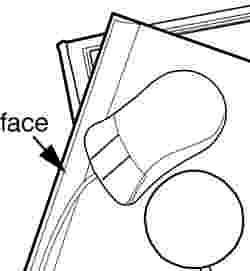JPEG Quality and Compression
Uses of the JPEG (Joint
Photographic Experts Group) file format are far and wide. Initially,
the file format was intended for use in Web applications, but
has found a home in the high-end print production markets, as
well. The JPEG file format can be your best friend if used properly,
or your worst enemy if implemented incorrectly.
A JPEG file is encoded
by using an adjustable lossy compression approach.
This means that to achieve smaller file sizes, image
data is actually thrown
away. In small doses, the JPEG compression approach
can be very effective and efficient. However, in larger
amounts, the resulting
file will contain "noise" and undesired artifacts
in the image.

As you apply
greater amounts of JPEG compression, and image gets
smaller in size. However at this reduction of file
size comes the deterioration of image quality.


Take
a look at these images. They all have been compressed
at different levels of JPEG. Since these artifacts
are seen most easily on images with hard edges, the
examples are shown using the monochrome sample image.
 |
1.
The control image. This is an uncompressed
image.
 |

|
 |
Notice
how this image has crisp and clean edges.
This image will reproduce well on press.
|
|
|
|
| |
2.
Image with a large amount of JPEG compression
applied.
 |

|
|
Notice
that this image is much softer on the
edges, and they are "fuzzy".
If
this image were to go to press, there
would be even more "noise" and
artifacts produced in the finished product.
Generally you can not see this noise
on a computer monitor.
|
|
| |
NOTE:
This image have been simulated to reflect
the appearance when they will be printed.
|

Since
the lossy compression approach actually removes image
data, once an image has been compressed (or over
compressed), the damage done is permanent. If you
try to open the over-compressed image in Photoshop
and convert it to a TIFF image to repair the problem,
you are only masking the true problem. Unfortunately
there is no repair for an over compressed JPEG image.

 See also "The Facts About JPEG Compression" See also "The Facts About JPEG Compression"
|